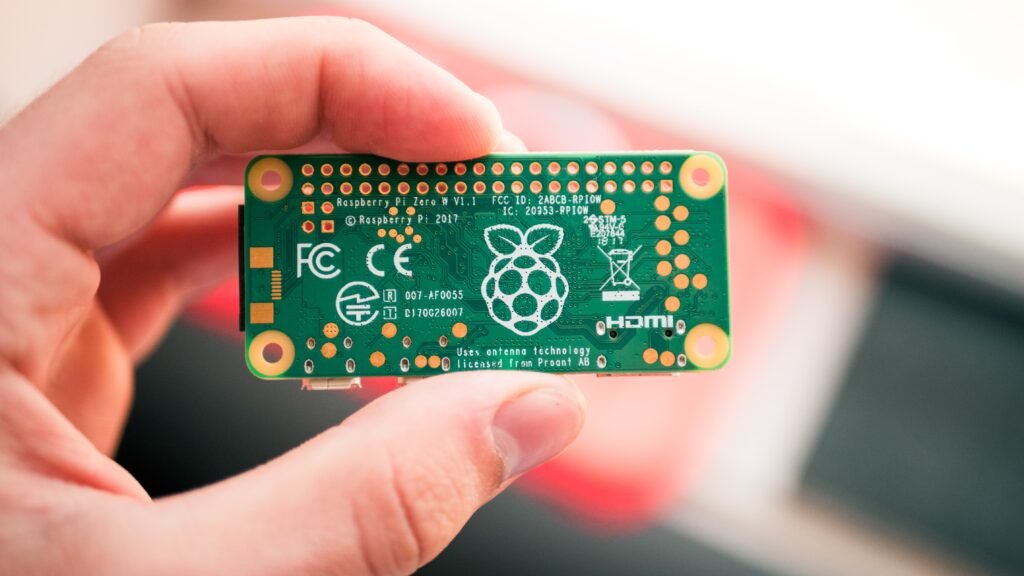Programming may not sound like the most glamorous of jobs, but it’s a crucial skill that helps us create a lot of the things we take for granted, from smartphones to traffic lights.
When it comes to programming languages, Python is one of the leading ladies. To learn Python, you’ll need dedication and seriousness, but your sacrifices will be well repaid.
In this guide, you’ll learn more about what Python is, its advantages over other longer-established programming languages like Java and C, potential career opportunities, and how you can learn Python yourself.
What is Python?
Python is what’s known as an interpreted, object-oriented, high-level programming language.
But what does this mean?
An interpreted programming language is a one that needs an interpreter. Compiled languages – like Rust, Go and C++ – require the building of a separate program to turn it into a language that a machine can read to execute it. An interpreted language, on the other hand, lets you build one program, then execute it line by line.
This means that if you are using a compiled language and want to make a change, you’ll need to rewrite it. If you use an interpreted language you can change only the line you need.
What does object-oriented mean?
This means that Python focuses on data and objects: differently from procedural programming, every part of a software can be processed as a data field that can have specific attributes and characteristics.
What does high-level mean?
This means that the programming language is easy to understand, since it’s similar to human language.
From these definitions, you will understand why it is convenient to learn Python.
Of course, this programming language also has downsides.
One of the most important is speed – it is usually slower than compiled languages, and it is not very good to program mobile applications – Python is not considered as an official programming language for Android and iOS.
Nevertheless, it is worth learning Python because it allows you to work in several fields, to program test tools, prototypes and much, much more.

Python Fundamentals
Learn the Python basics, including how to clean real-world data ready for analysis, use data visualization libraries, and how to write custom Python functions.
Python Fundamentals
Learn the Python basics, including how to clean real-world data ready for analysis, use data visualization libraries, and how to write custom Python functions.
Reasons to learn Python
We provided you with some definitions from which you can understand why Python is the best choice if you want to learn programming and start your career in this field.
Actually, compared to other famous programming languages like C++ (a compiled language) or Java (few applications), Python can be implemented to create almost every kind of software. Let’s see why in detail.
Python is easy to learn
As we said earlier, Python is a high-level programming language, and this means that its syntax is very easy and close to human language. Moreover, its structure as an object-oriented and interpreted language makes it easy for users to cooperate, because different sections can be worked separately without the need to modify the entire program.
This allowed users to create a lot of publicly accessible documentation around Python.
It’s extensible
Precisely because its structure encourages cooperation, you can get access to thousands of open-source libraries you can use to improve your knowledge and cooperate with other users in the creation of a program.
You can easily check the popularity of Python by visiting GitHub.
It’s portable
Python is structured to have a large usage. You won’t even need to do additional work to transfer a program built with Python from an operating system to another – for example, from Windows to MacOS.
It’s is also the main language of Raspberry Pi – those small computers you can use to learn Python programming, but you can also use it in thousands of other cases.

Wide applications
You can use Python for AI, to build websites, analyze data and create graphs, to create automation tools. If you learn Python, you can do anything.
According to HackerRank, Python is also the most used language in Fintech – in fact, you can learn Python also to understand how to code a blockchain.
You should also take into account that Python can be useful also to develop games.
According to Mordor Intelligence, the gaming market reached a value of over $173 billion in 2020, and is expected to double this number by 2026.
It’s clear that this programming language can give you access to a lot of opportunities for what concerns your career, but let’s see more in detail what your opportunities could be.
Career opportunities
If you learn Python you can become – of course – a developer, an engineer, a data scientist, a financial advisor, or whatever you want.
According to Indeed, your average salary could range from $50,000 to over $140,000 per year.
Moreover, you can consider getting a job in one top company: Google, Instagram, Facebook, Quora, Netflix, Spotify are just a few companies that focus on Python to develop their services.
But it looks like the main application of Python is for data science. According to Course Report, in 2018 66% of data scientists were using Python, and this number grew in the last years – especially if compared to the use of another popular programming language for data science, R.
This happens precisely because learning Python and using it is easy, and this is a pro for those who want to analyze and represent data.
But let’s see in detail how you can learn this widely used programming language.
How to learn Python
Born in 1992, Python quickly became a popular programming language.
For the reasons we mentioned so far, you should consider learning this programming language if you want to start a totally new career or if you want to be more skilled in your current job.
You can find a lot of sources for learning Python: from YouTube videos to free online Python courses, you can decide how to take the next step in your career by learning this programming language.
But, as any other skill, it is better to acquire it in a “measurable” way.
In fact, even if many can learn basically anything online, to get a good job it’s always better to pursue a certification and to learn from accredited professionals.

IBM Data Science Professional Certificate
Kickstart your career with an IBM data science certificate. Learn data science, Python & SQL, analyze & visualize data and build machine learning models.
IBM Data Science Professional Certificate
Kickstart your career with an IBM data science certificate. Learn data science, Python & SQL, analyze & visualize data and build machine learning models.
You will notice that most courses last just a few weeks, precisely because Python is not hard to learn and you can put into practice what you learn very soon, since you can download this programming language for free and in a few clicks from Python’s official website.
As you can see, you can build a fruitful career by exploiting online resources. You can really start from scratch and improve your skills, especially thanks to the amazing community around Python.
